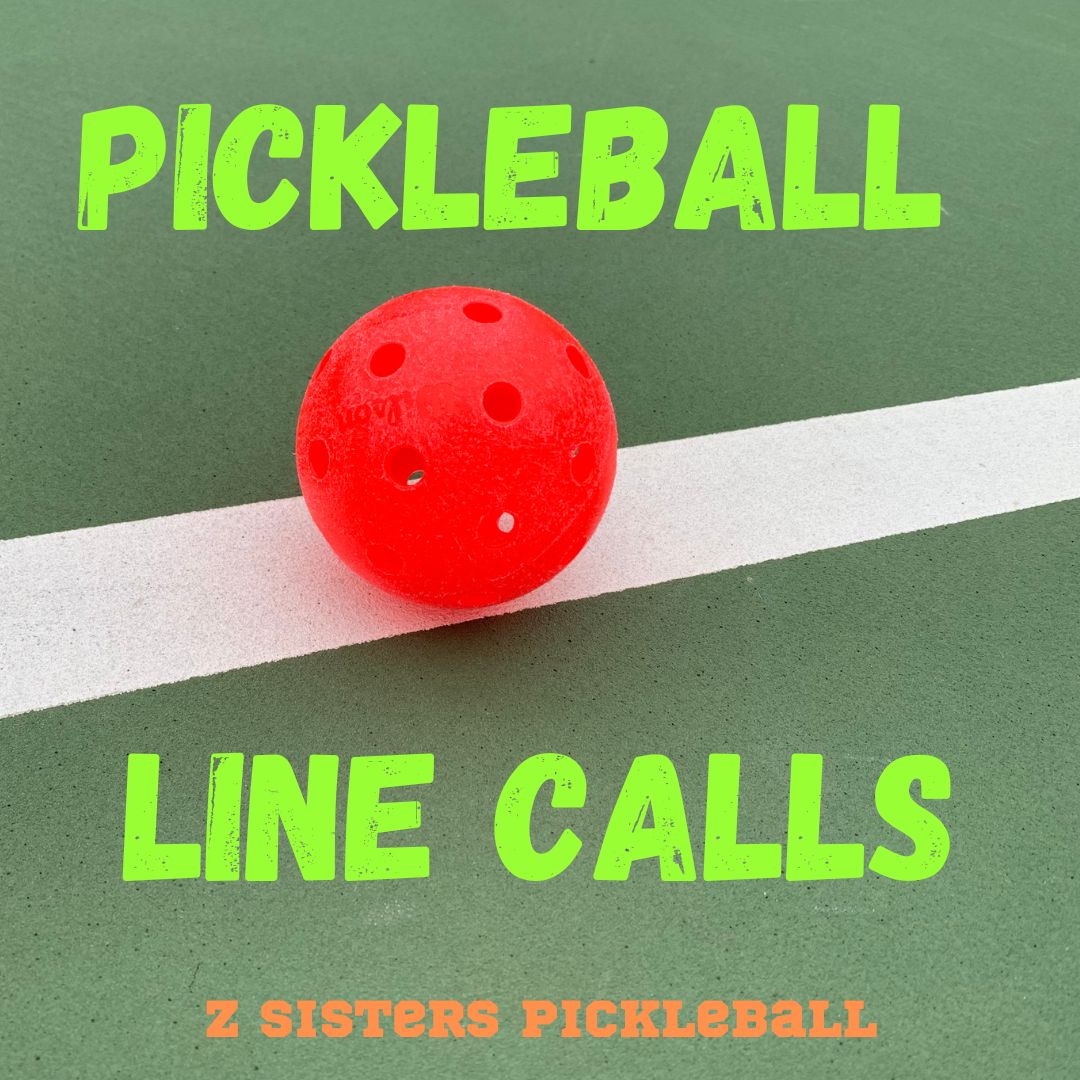Mastering Pickleball Line Calls
Calling the ball in or out in pickleball can lead to heated debates on the court. This guide aims to clarify the rules surrounding pickleball line calls and provide tips on how to maintain fairness and sportsmanship during your games.
Understanding the Basics of Line Calls
When it comes to line calls in pickleball, there’s often confusion. Players may wonder if their opponents are making fair calls. As Doris from New York City asked, what’s the rule on calling the ball out? Let’s break this down.
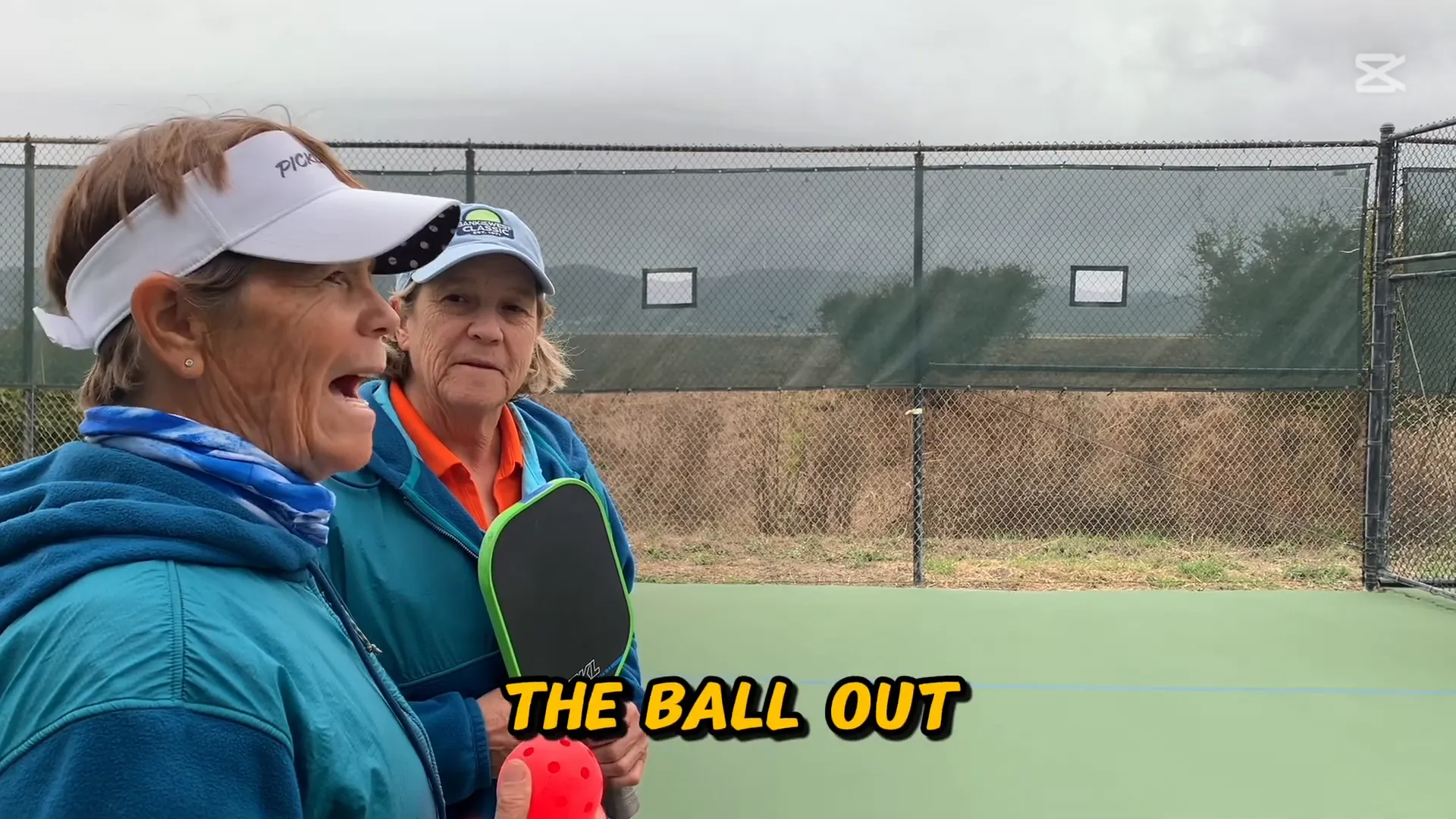
The official rule book provides specific guidelines. It’s important to remember that making the right call is not just about winning or losing; it’s about keeping the game fun and fair for everyone involved.
Key Tips for Making Line Calls
Here are some essential tips to ensure you’re making accurate line calls:
Tip 1: Know When the Ball is In
When the ball touches the line, it is considered in. Even if only a fraction of the ball touches the line, it counts as in. However, this rule has an exception: on serves, if the ball hits the kitchen line or the non-volley zone line, it is out. The line is part of the non-volley zone.
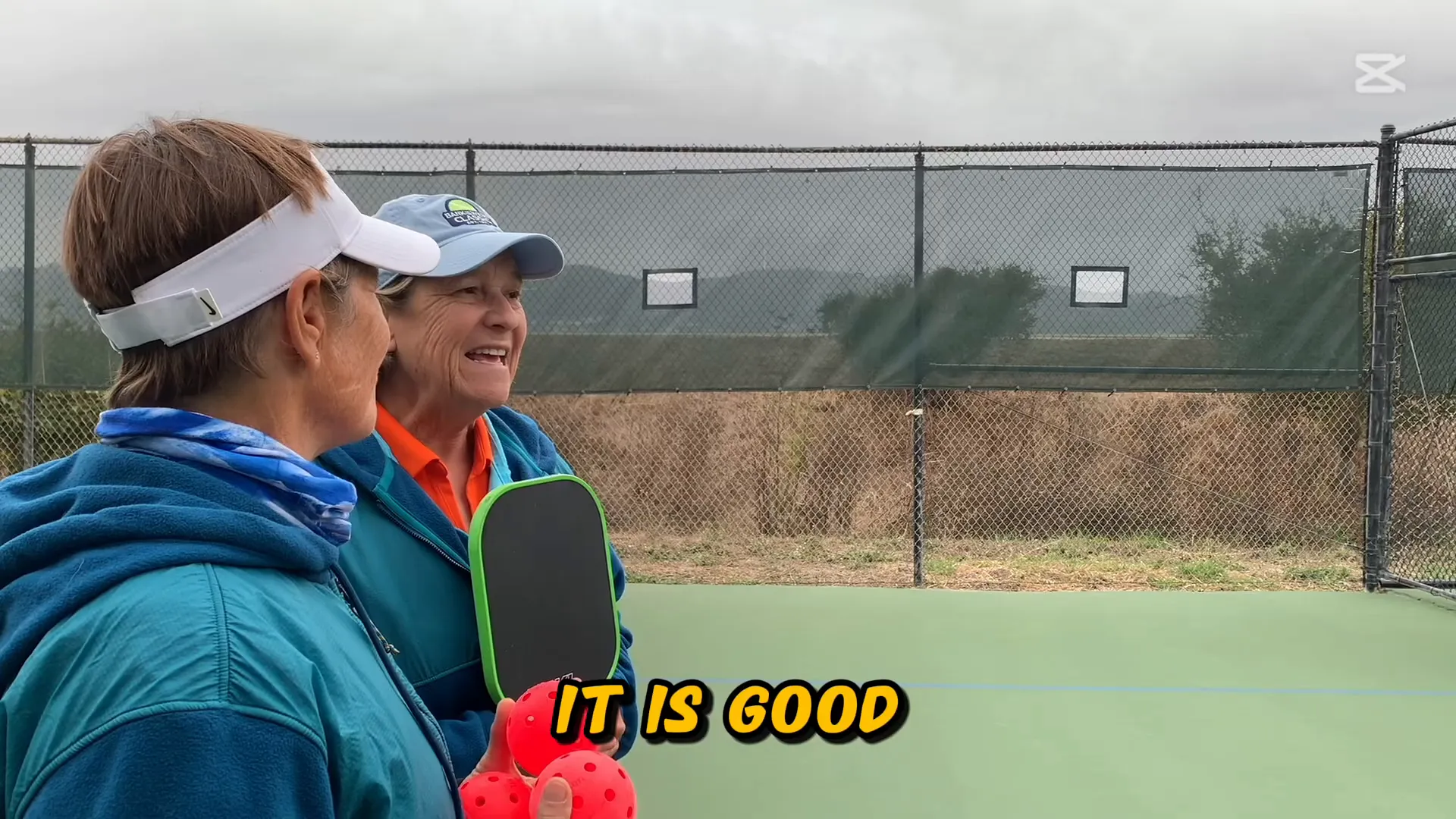
Tip 2: Calling the Ball in Recreational Play
In recreational play, the receiving team is responsible for making the call. If the ball lands on your side of the court, it’s your call. Use hand signals to communicate effectively; for example, a raised hand can indicate the ball is out.

In doubles, either partner can make the call. Remember, if you’re not sure, the benefit goes to your opponent—the ball is in.
Tip 3: Timing Your Pickleball Line Call
Timing is crucial. Make your call as soon as the ball lands—no hesitation. Waiting too long can lead to confusion, much like waiting to call shotgun in a car, you won’t be in the front seat.
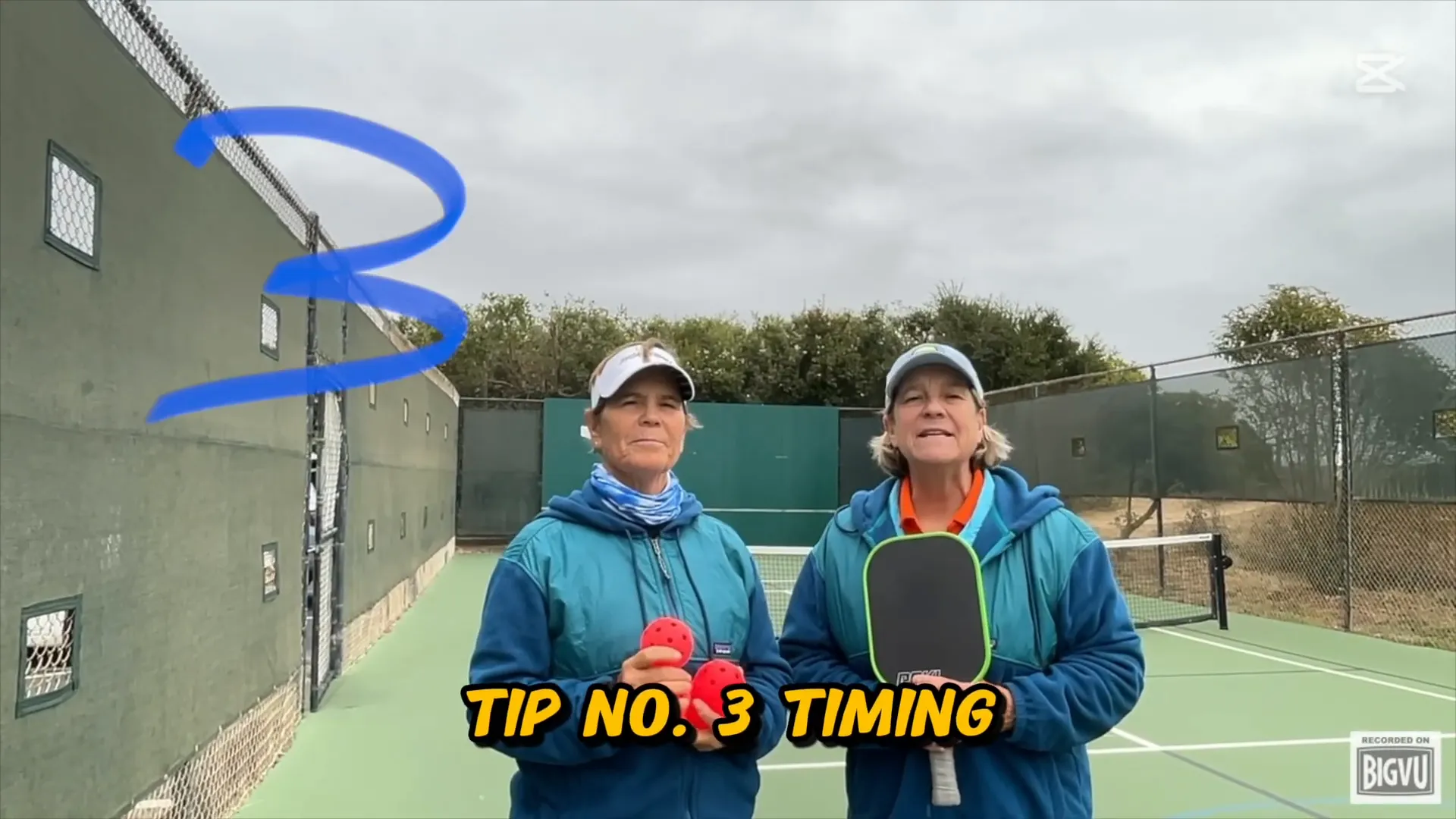
Tip 4: Use Hand Signals
Hand signals are a great way to communicate. For instance, raise your hand to signal “out” and keep it flat to indicate “in.” This is especially useful in noisy environments where verbal communication may be difficult.
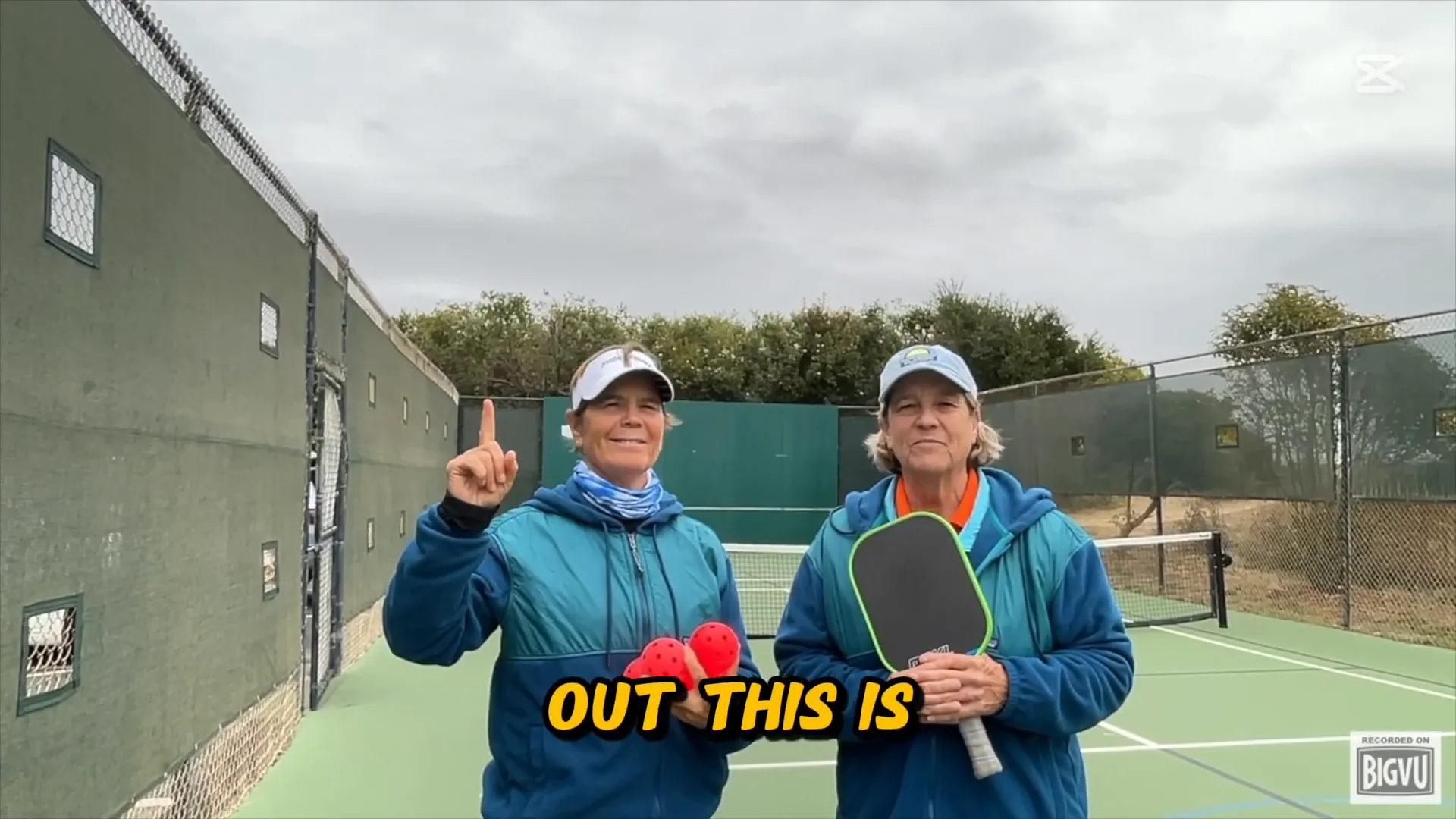
Tip 5: Practice Good Sportsmanship
After the match, it’s important to acknowledge your opponent. Whether it’s a simple “good game” or a “thank you”, these gestures promote good sportsmanship. Even if you lost a close match, showing respect can go a long way.
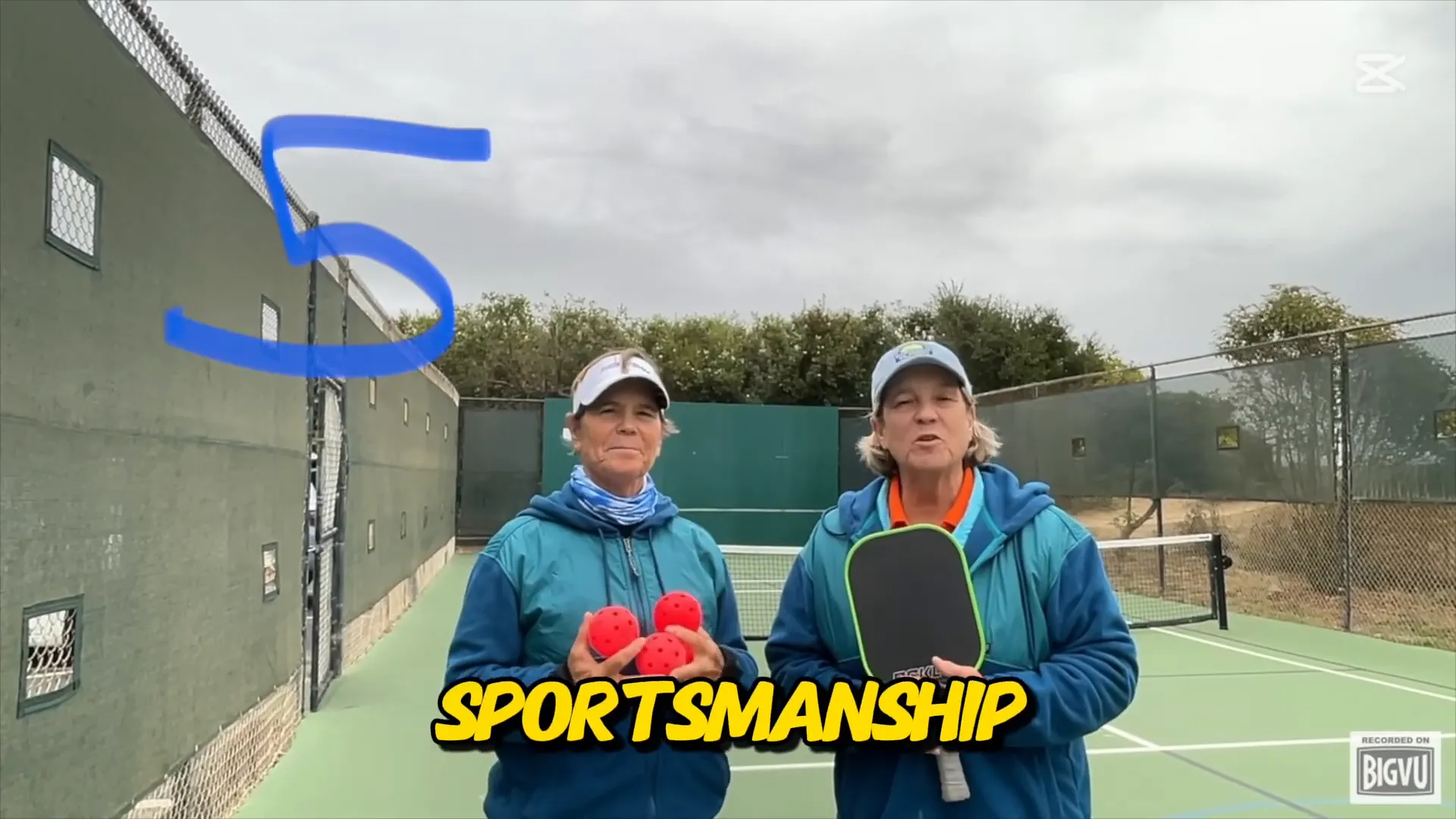
Fair Play and the Code of Ethics
Fair play is essential in pickleball. The code of ethics for line calling emphasizes that players must strive for accuracy and resolve any questionable calls in favor of their opponents. Here are some key points from the code:
- Players are responsible for calling lines on their side of the court, excluding certain faults if a referee is present.
- Players should only call a ball out if they can clearly see space between the line and the ball.
- If there’s uncertainty, the ball is considered in.
- Out calls must be promptly signaled before the opponent hits the ball.
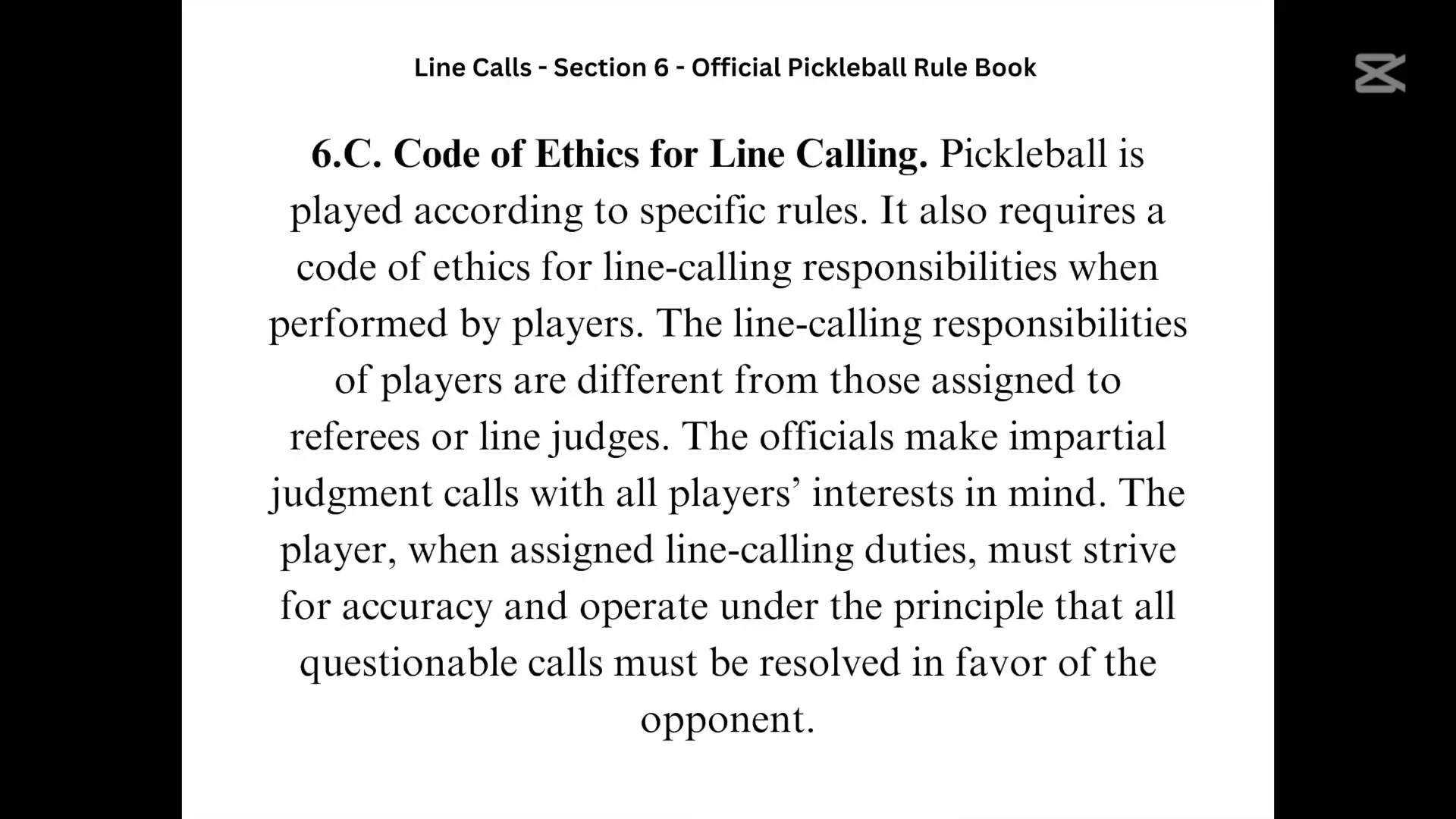
Understanding the Official Rules
The 2024 USA Pickleball Official Rule Book outlines specific regulations regarding line calls:
As an Amazon Associate, I earn from qualifying purchases
Rule Highlights
- 6A: A served ball that lands in the correct service court or touches any court line is in.
- 6B: A ball completely outside the court is out.
- 6C: Players must call the lines on their side of the court and cannot rely on spectators for calls.
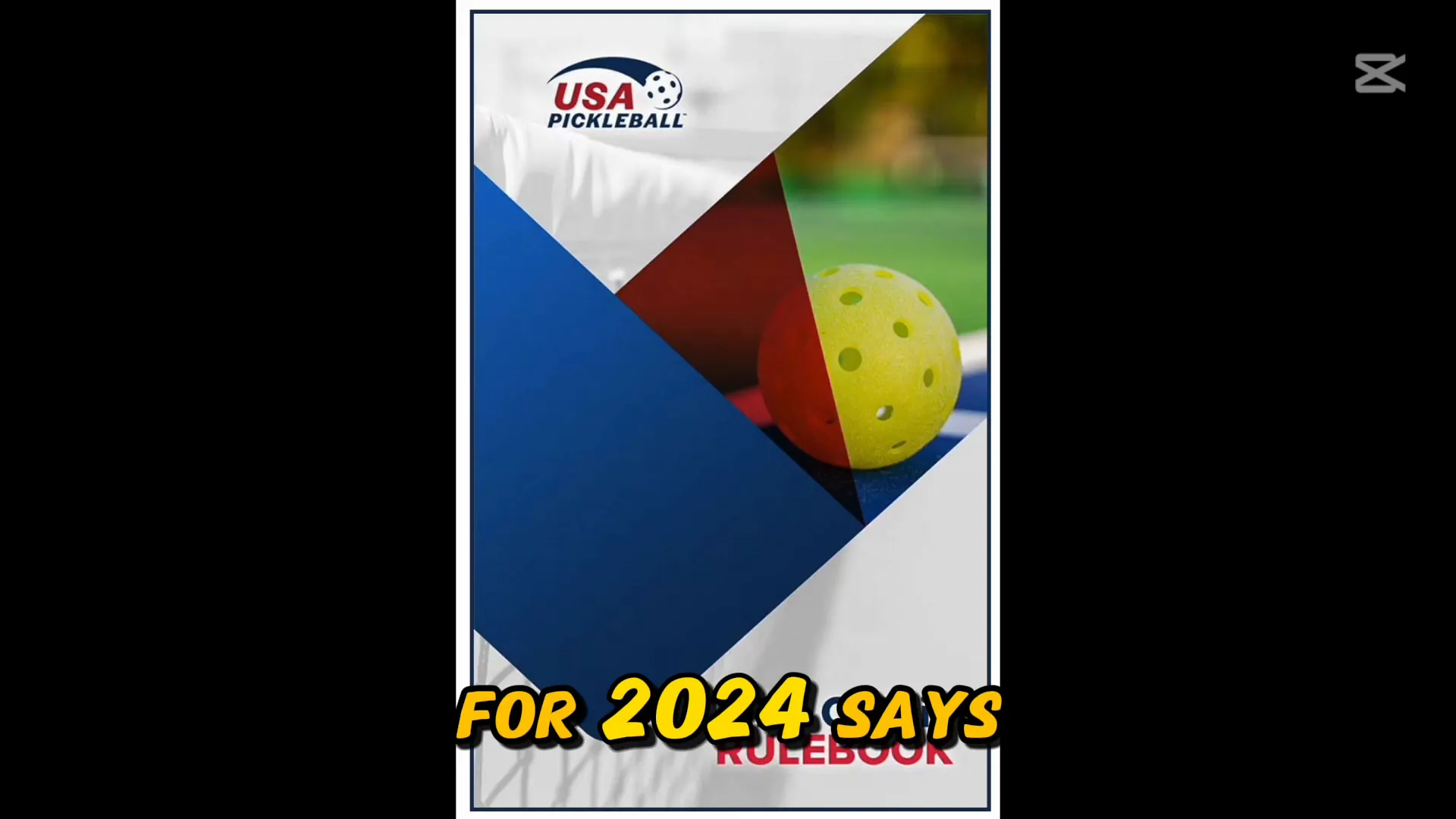
Additional Tips for Fair Play
In addition to understanding the rules, here are more strategies to enhance fair play:
- Be clear and loud with your calls.
- Use hand signals for better visibility.
- Encourage open communication with your partner and opponents.
Conclusion
By following these guidelines and tips, you can ensure that your pickleball games are enjoyable and fair for everyone involved. Remember, line calls are a part of the game, but good sportsmanship and fair play should always come first. Happy playing!
Pickleball Stuff We Love and Recommend
The list keeps growing! Click me
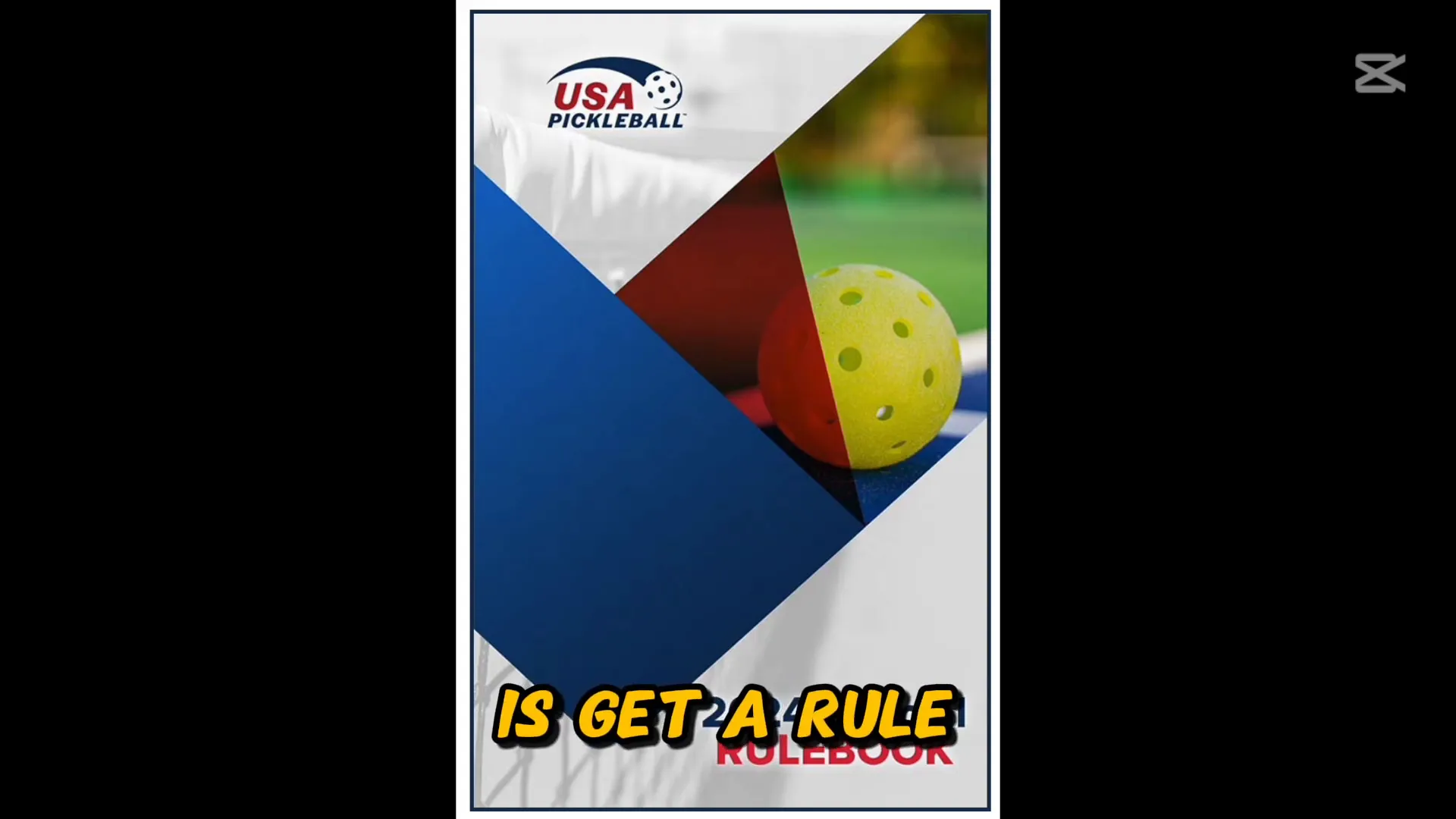
Made with VideoToBlog

